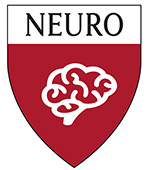MCB faculty Naoshige Uchida will succeed MCB faculty Jeff Lichtman as Head Tutor of Neuroscience. Each undergraduate concentration at Harvard has a Director of Undergraduate Studies (DUS)—also known as a Head Tutor. The DUS is a faculty member responsible for setting the concentration’s requirements and leading the concentration. They work closely with concentration advisers to handle the concentration’s administrative tasks. Lichtman left the position when he became Dean of Science for FAS.
“Nao is a brilliant researcher who is seeking answers to some of the deepest questions about how brains work,” Lichtman says. “He is so thoughtful and kind, I am sure he will bring both fresh excitement and strong leadership to guide a new generation of students into the study of the brain, this most daunting piece of ourselves.”
“We are excited for his ideas on how to keep our curriculum and program at the cutting edge of science,” says Assistant Director of Undergraduate Studies in Neuroscience Ryan Draft. “He is a world class researcher, and his work touches all levels of neuroscience research from molecules to physiology to computation and behavior.”
Uchida is looking forward to leading the concentration. “Neuroscience is a rapidly advancing, exciting field, driven by novel techniques, new ideas, and collaboration with diverse disciplines,” he says. “As a highly multidisciplinary field, neuroscience intersects with medical science, psychology, economics, and artificial intelligence. I hope students come to appreciate and enjoy the dynamic, interdisciplinary nature of neuroscience.”
“Under the supervision of Prof. Jeff Lichtman and Prof. Venki Murthy, the Neuroscience concentration has become one of the biggest and most popular concentrations at Harvard,” Uchida adds. “I would like to keep the momentum.”
Lichtman has been DUS in Neuroscience since 2017. He oversaw the transition from Neurobiology to Neuroscience in 2018. “The name change signifies the reality that understanding how nervous systems, and most especially brains, work requires in addition to the world view of biologists, the efforts of mathematicians, computer scientists, engineers, chemists, statisticians, clinicians, and many others,” Lichtman explains.”Neuroscience covers a much wider swath of brain researchers than neurobiology.”
According to Draft, Lichtman’s accomplishments as DUS in Neuroscience have been numerous. Working with Curriculum and Pedagogy Manager Kathleen Quast, he revamped the introductory course Neuro 80 and increased enrollment in the course. He also added an oral defense in front of two faculty to the thesis review process. He advocated for hiring another concentration adviser to meet the increasing demand, which eventually led to Kristina Penikis being added to the Neuroscience team.
Today, Neuroscience is one of the fastest growing concentrations at Harvard. In the 2013-2014 academic year, there were about 230 Neuro concentrators. In recent years, that number has swelled to about 300. “I am really proud of the great team of Ryan, Laura, and Kristina who have made the Neuroscience concentration both the largest life sciences concentration and a concentration students have enjoyed being a part of,” Lichtman says. “They have made my job ridiculously easy- which speaking personally is a wonderful accomplishment!”
The Neuroscience team is looking forward to continued success with Uchida at the helm. “Neuroscience in general is a field with a great many important unanswered questions and untreatable diseases,” Draft says. “Moreover, the brain underlies all behavior, so it will always be a vital area of study. Here at Harvard, our concentration is made vibrant by the students and the faculty. The students bring the passion, energy, and enthusiasm to learn and ask questions that make us think more deeply, and the faculty provide a huge array of courses and labs for students to explore.”



